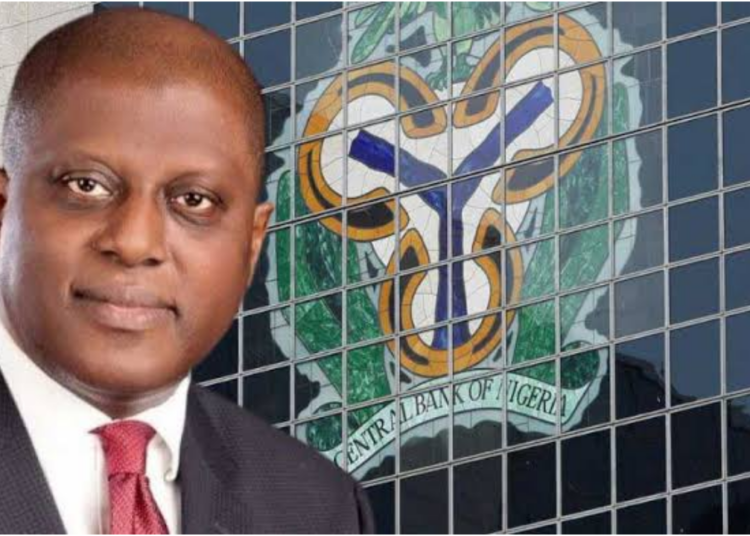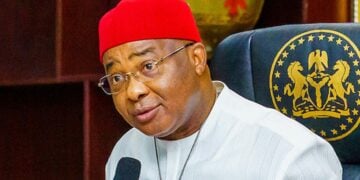At a time when Nigeria’s economy is navigating one of its most ambitious reform cycles in decades — characterised by the liberalisation of the foreign exchange market, renewed monetary tightening, and ongoing structural adjustments — the Central Bank of Nigeria (CBN) convened its 2025 Executive Policy Seminar in Abuja. The annual gathering, attended by senior policymakers, economists, industry leaders and international partners, provided a platform for stock-taking, policy alignment and fresh commitments.
This year’s edition, themed “Deepening Reforms: Path to Stabilisation and Sustainable Growth,” became a major turning point in the Cardoso-led CBN’s effort to restore price stability, anchor expectations and set a clear roadmap for long-term economic resilience.
CBN Governor Olayemi Cardoso opened the seminar with a sober but confident call for “reflection, recalibration and renewed commitment” to a shared vision of a more stable and inclusive economy. He recalled how earlier editions of the seminar had shaped major reforms — from FX market transparency initiatives to stricter monetary discipline — and noted that the current stage requires deeper consolidation and sharper execution.
Cardoso explained that the focus areas for the year — capital flows, inflation targeting, industrial competitiveness, export expansion and SME finance—reflect the fundamental dimensions of Nigeria’s economic recalibration and the need to reinforce investor confidence.
The Governor’s remarks were anchored on a principle he repeatedly emphasised: predictability. He warned that no economy can attract sustainable investment if its policy environment is uncertain or inconsistent. For Cardoso, the renewed commitment to inflation targeting is not merely a technical adjustment but a strategic tool for anchoring expectations.
By giving investors and businesses a clearer sense of direction, he argued, Nigeria stands a better chance of unlocking domestic and foreign capital to stimulate long-term growth. He also stressed the need for deeper cooperation with fiscal authorities, insisting that tackling inflation requires not only monetary tightening but also supply-side reforms capable of lowering production costs and improving industrial competitiveness.
Yet, the seminar was not just about projecting confidence. Cardoso offered a candid reflection on past policy excesses, particularly the over-extension of ways-and-means financing and the proliferation of loosely monitored intervention programmes. These, he said, distorted Nigeria’s monetary environment and contributed to the inflationary pressures the country is still working to contain.
Reaffirming the CBN’s independence, he assured Nigerians that the era of informality, opacity and administrative discretion at the apex bank is over. “Nigerians do not need to know anybody to get their transactions done with the Central Bank,” he declared. It was a message as much about institutional integrity as it was about the bank’s determination to rebuild public trust.
If Cardoso provided the macroeconomic backdrop, Minister of State for Finance, Dr. Doris Uzoka-Anite, delivered the seminar’s most anticipated moment: the unveiling of the Dis-Inflation and Growth Acceleration Strategy (DGAS)—a coordinated macroeconomic framework jointly designed by the Finance Ministry and the CBN. The Minister began by framing the urgency of Nigeria’s growth challenge.
While the World Bank has projected a moderate recovery, with growth approaching 4 percent next year, Uzoka-Anite argued that this trajectory is insufficient for a nation with Nigeria’s demographic pressure, structural needs and development ambitions. To double national income and pull millions out of poverty, she insisted, Nigeria must achieve sustained growth above 7 percent, and ideally approach 10–12 percent annually if the goal of a trillion-dollar economy by 2037 is to be realised.
DGAS, she explained, is the policy architecture designed to achieve this transition. The strategy marks the second phase of reforms—coming after currency liberalisation and energy market adjustments — and seeks to resolve the deep-rooted supply challenges that have historically fuelled inflation and constrained productivity.
Rather than relying on intermittent interventions or short-term adjustments, DGAS provides a coherent pathway for long-term, non-inflationary growth.
Central to this framework is the reorganisation of capital mobilisation mechanisms across the economy. Uzoka-Anite described a new development finance structure capable of attracting long-term, concessionary funding from domestic and international sources, while leveraging diaspora savings, private equity, blended finance and credit guarantees.
The goal, she noted, is to reduce Nigeria’s dependence on volatile portfolio inflows and create a stable pool of patient capital to support energy infrastructure, manufacturing, logistics corridors and digital systems. She described this transition as essential for lowering Nigeria’s overall cost of capital and improving competitiveness across value chains.
DGAS also places strong emphasis on accelerating productivity in high-impact sectors. Agriculture, energy, mining, manufacturing, digital services, creative industries and healthcare were identified as key growth anchors. The plan envisions revitalised Special Economic Zones equipped with reliable power, efficient logistics and predictable regulatory frameworks—creating industrial clusters capable of competing regionally and globally.
To make that vision concrete, Uzoka-Anite illustrated the heavy cost Nigeria incurs by exporting raw crude and importing refined products, arguing that the same inefficiency is replicated across numerous value chains where local beneficiation is weak.
In addition, DGAS outlines a far-reaching modernisation of Nigeria’s energy infrastructure. The Minister described a multi-fuel future where oil, gas, hydro, solar, wind, biomass and emerging green technologies coexist within an expanded, more resilient energy architecture.
She revealed that Nigeria plans to integrate more deeply into global carbon markets, unlocking sustainable finance to decarbonise industries and accelerate the transition to cleaner energy sources.
The strategy equally recognises technology as a critical growth enabler. Uzoka-Anite explained that achieving high and inclusive growth requires automation-driven manufacturing, widespread broadband access, AI-ready data centers and stronger digital governance systems. She noted that all major global growth engines—from India to Vietnam—have relied on digital transformation to accelerate productivity, and Nigeria must do the same.
Human capital emerged as another defining pillar. The Minister announced an ambitious plan to train 10 million young Nigerians annually, linking vocational, technical and digital skills development to the needs of priority sectors. This approach, she said, would address both unemployment and the persistent mismatch between education outcomes and labour-market demands.
Uzoka-Anite also presented a transformative vision for consumer credit, describing it as a cornerstone for stimulating domestic demand. She argued that economies grow faster when households have responsible access to credit for housing, health, education and local goods. Under DGAS, consumer credit will be expanded through digital identity systems, credit scoring, collateral registries and targeted guarantees.
The Minister acknowledged that inconsistent regulations and conflicting directives have long undermined competitiveness. She disclosed that nearly 40 percent of existing regulations may need to be reviewed or eliminated to create a clearer investment climate. A unified coordination mechanism will harmonise fiscal, monetary, trade and investment policies, ensuring that the entire government operates with a single economic objective.
On governance, DGAS reframes the role of government as an enabler rather than a dominant market actor. Public institutions will be expected to adopt a productivity-centred mindset, guide private investment, and support industrial expansion through clear incentives and reliable policy implementation.
The strategy also positions Nigeria as a regional logistics and trade hub. By strengthening transport corridors, aviation networks, maritime gateways and inland dry ports, DGAS aims to link domestic industries to African and global supply chains, thereby expanding export earnings and reducing import dependence.
Throughout her presentation, Uzoka-Anite emphasised that DGAS cannot succeed if fiscal and monetary authorities operate in silos. She described the strategy as a joint performance framework with clearly defined metrics: single-digit inflation within two years, non-oil GDP growth above 7 percent by 2027, significant annual credit expansion to the productive sectors, export diversification, and the creation of at least five million jobs.
A new Delivery and Performance Unit, jointly managed by the Finance Ministry and the CBN, will enforce compliance and publish quarterly progress scorecards—ensuring that DGAS transitions from policy ambition to measurable results.
As the seminar drew to a close, it became clear that Nigeria’s economic managers see this moment as a defining turning point. The macroeconomic foundation—built through FX reforms, monetary tightening and enhanced governance—is firmer than it has been in years. The challenge now lies in disciplined execution, sustained coordination and national resolve.
Both Cardoso and Uzoka-Anite reinforced a shared message: Nigeria has the tools, the policy clarity and the institutional alignment needed to chart a new economic course. What remains is the collective commitment to protect the gains already made and expand the frontiers of opportunity.
The CBN Governor rightly put it when he said “We must protect the gains we have made. This is our economy. If we stay focused, disciplined and united, we will get to where we aspire to be.”





